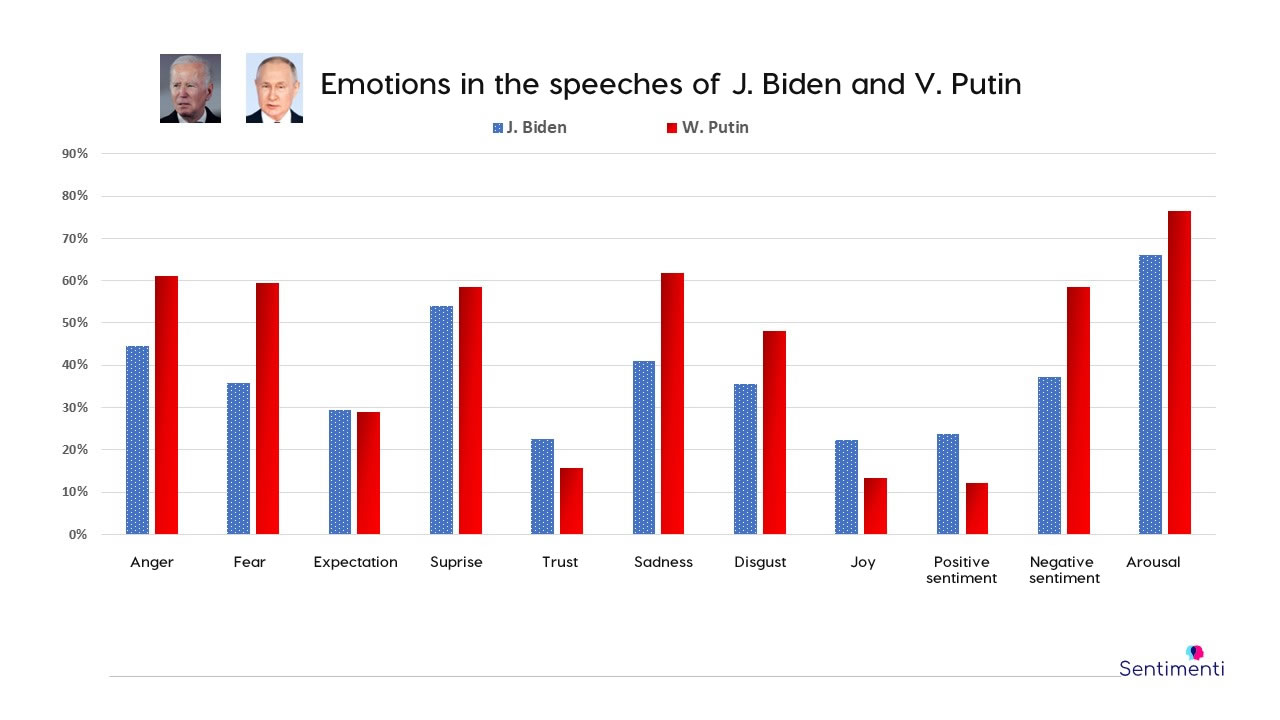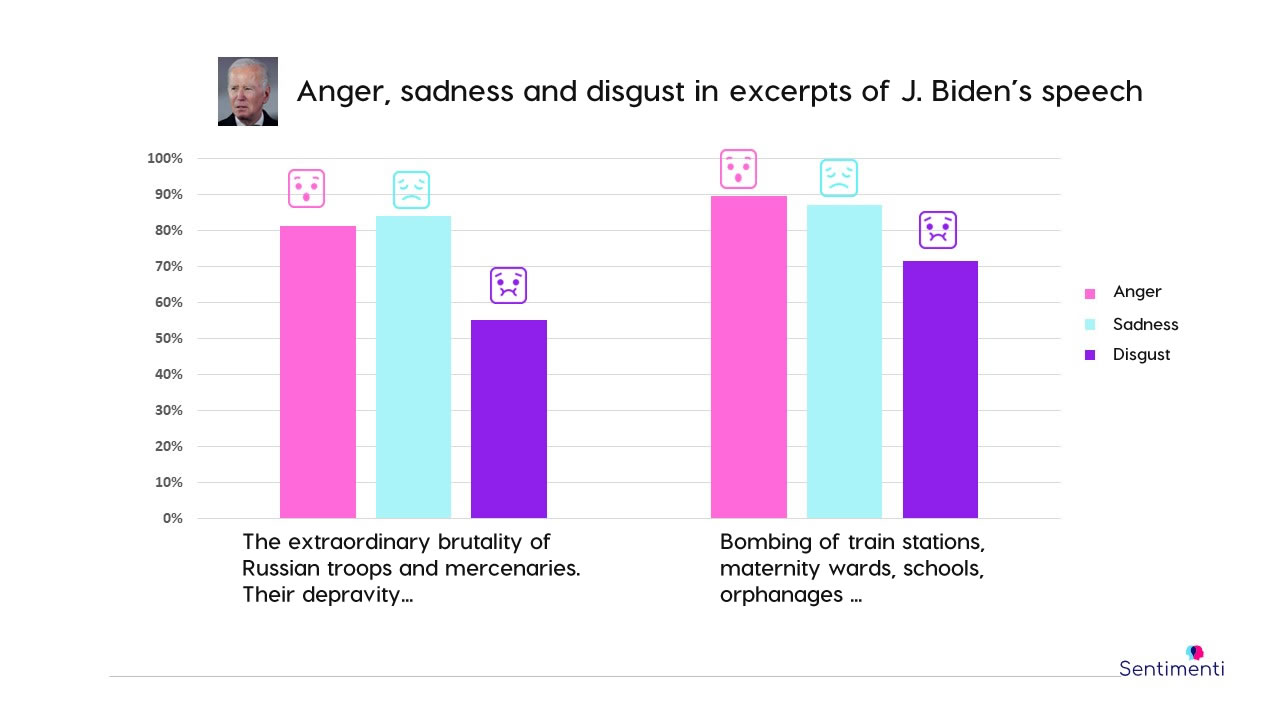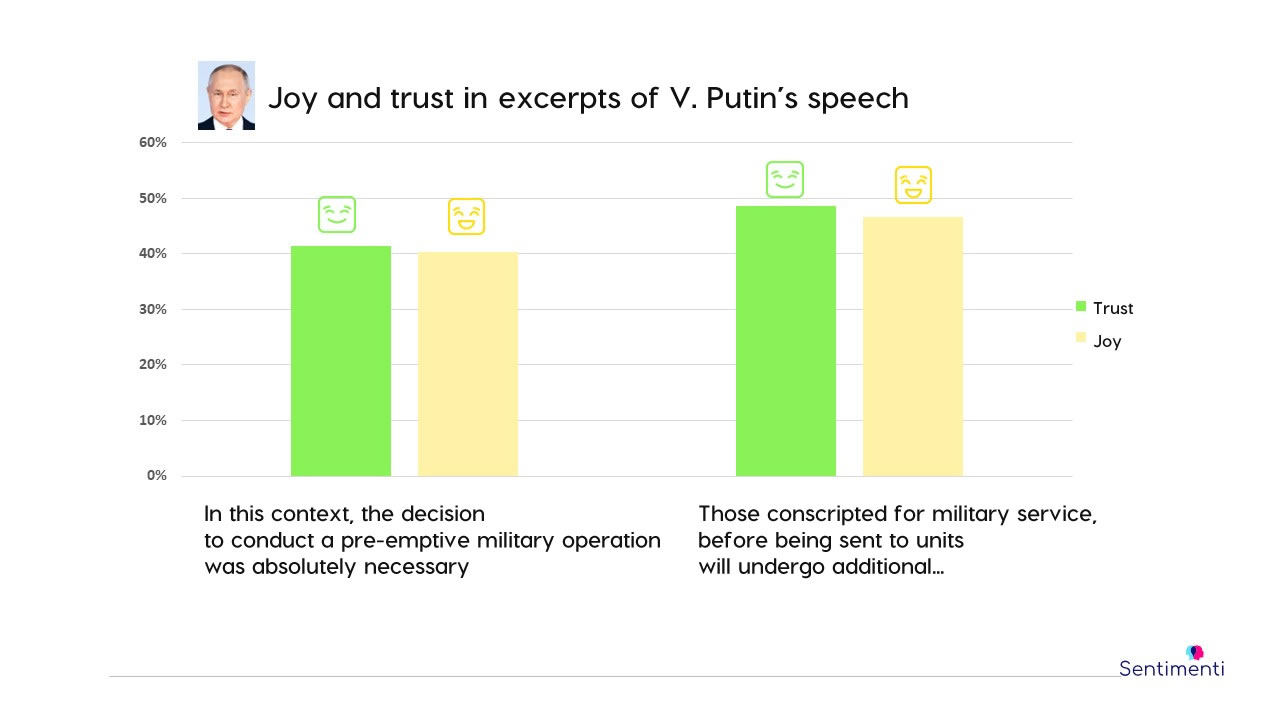For the past few days, Poland, Europe, the world have listened intently to the speeches of the US and Russian presidents.
General picture of emotions in speeches of US and Russian presidents
President Biden and Putin gave speeches on the same issues – that is, the war in Ukraine. Both speeches were characterized by a high intensity of agitation and emotion. These intensities were noticeably higher in Putin’s speech and involved emotions described as negative (anger, sadness, revulsion). Both speeches were analyzed paragraph by paragraph.

Issues that arouse the strongest negative emotions
Both J. Biden and V. Putin used expressive emotions in their message. The difference was which issues raised, the speakers endowed with emotions that strongly affect the listeners. To illustrate this, the paragraphs characterized by the greatest intensity of emotions (anger, sadness, revulsion) were selected for analysis.
W przypadku przemówienia J. Bidena największe natężenie takich emocji pojawiło się przy wspomnieniu o udokumentowanym barbarzyństwie rosyjskich agresorów:
- “The extraordinary brutality of Russian troops and mercenaries. Their depravity, they commit crimes against humanity, without shame or scruples. Intentionally bringing death and destruction to civilians. Using rape as a tool of warfare. Stealing Ukrainian children as an attempt to rob Ukraine of its future.”
- “Bombing train stations, maternity wards, schools, orphanages. No one, no one can look away from the atrocities committed by the Russians against the Ukrainian people. It’s disgusting, it’s disgusting.”

On the other hand, in V. Putin’s speech, anger, sadness, and revulsion appeared in the greatest intensity at the alleged crimes committed by the Ukrainian government against its citizens, which he discussed:
- “At the same time, a regime of repression against its own citizens, established immediately after the armed coup of 2014, has intensified in Ukraine. The policy of intimidation, terror and violence is taking increasingly massive, horrific and barbaric forms.”
- “I would like to emphasize that we know that the majority of people living in areas liberated from neo-Nazis, primarily in the historic lands of Novorossiya, do not want to be under the yoke of the neo-Nazi regime. In Zaporizhia, Kherson region, Luhansk and Donetsk, they have seen and see the atrocities committed by neo-Nazis in the occupied districts of Kharkiv region. Descendants of Bandera and Nazi executioners are killing people, torturing, imprisoning, levelling, massacring and torturing civilians.”

Matters that arouse the strongest positive emotions
Even greater differences appeared with issues that speakers saturated with strong emotions that were read by listeners as positive messages. This is shown by the paragraphs with the highest intensity of emotions of joy and trust.
Thus, the strongest emotions of joy and trust in J. Biden’s speech appeared when he thanked for the help shown and asked for blessings:
- “May God bless you all. May God protect our troops. And may God bless the heroes of Ukraine and those who defend freedom around the world.”
“Thank you, Poland. Thank you, thank you, thank you for what you are doing. God bless you.”

In the case of V. Putin, the strongest positive emotions came in the speech when he addressed issues related to the army and the “intervention” being carried out:
- “In this context, the decision to conduct a pre-emptive military operation was absolutely necessary and the only possible one. Its main goals – the liberation of the entire Donbass territory – were and remain unchanged.”
- “Those called up for military service will undergo additional military training that takes into account the experience of the special military operation before being sent to units.”

To sum up, both J. Biden and V. Putin in their speeches did not hesitate to use statements that evoke strong emotions in their listeners. The difference, however, was whether the strong emotions were meant to emphasize real, key events – as was the case with J. Biden’s speech – or whether they were only meant to “give credence” to the theses made by V. Putin.